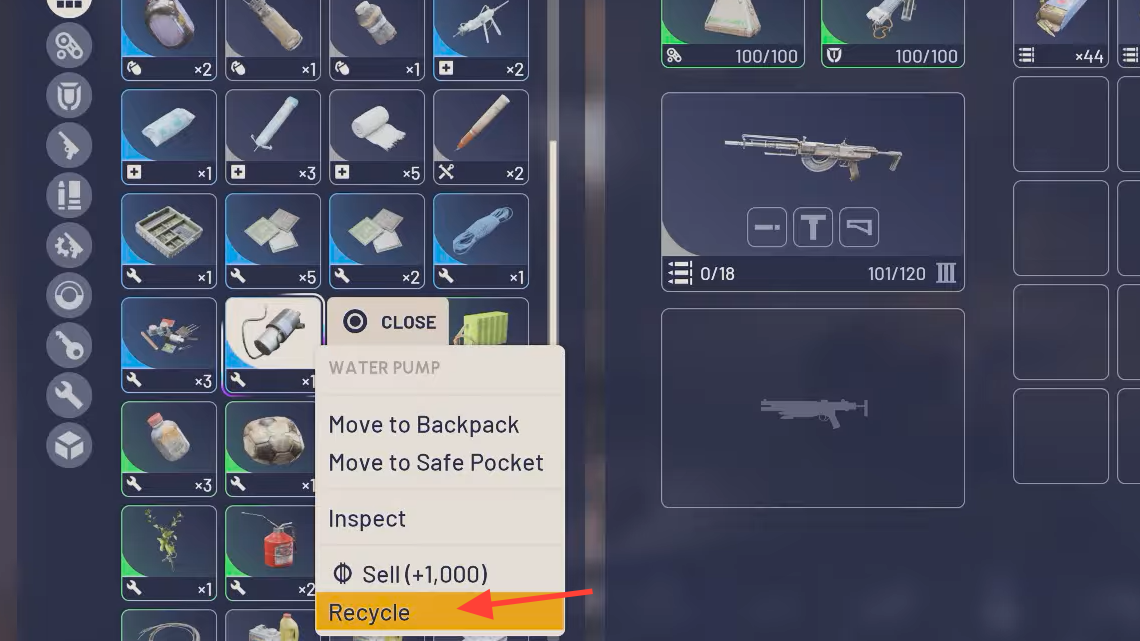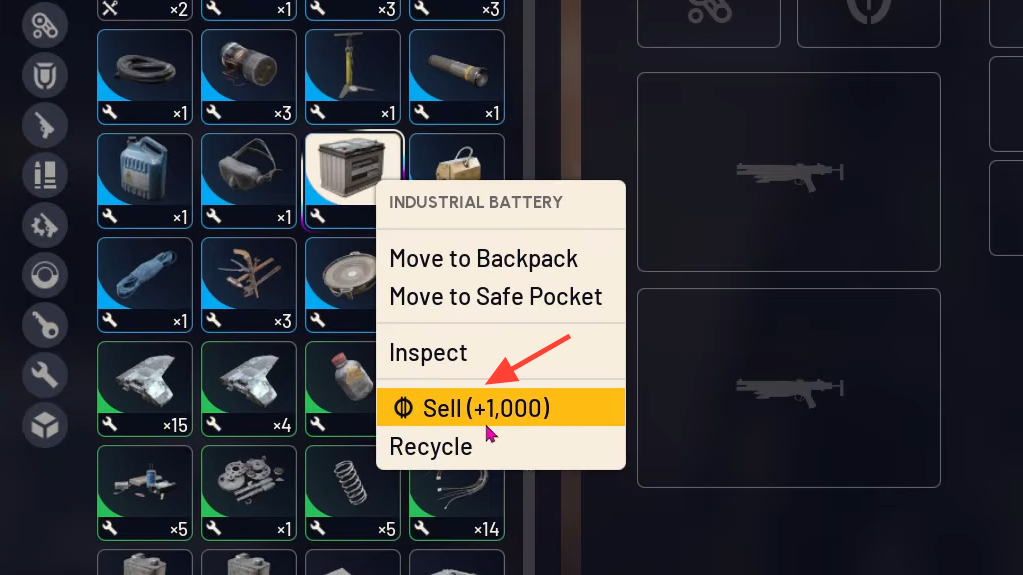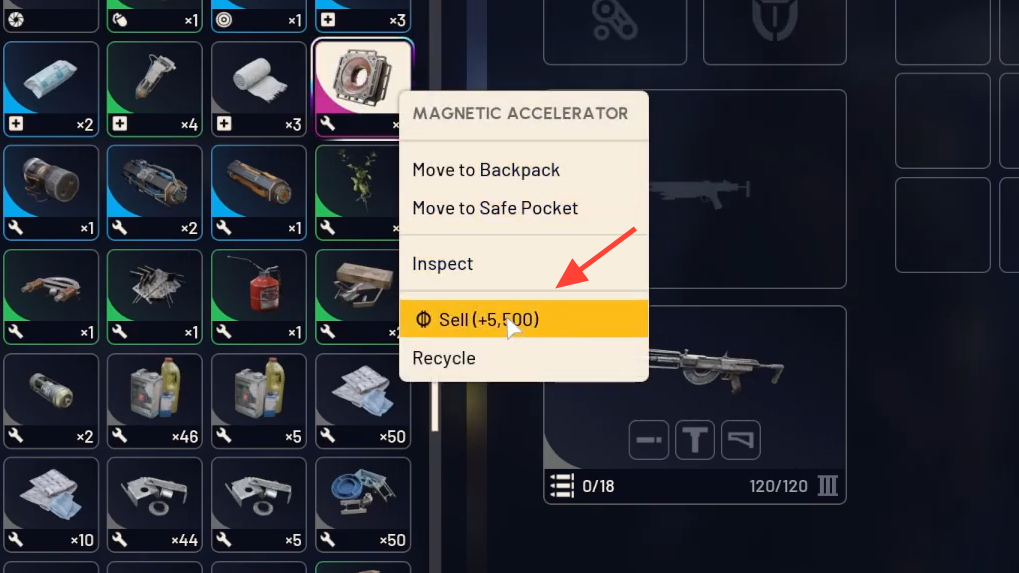ARC Raiders lets you turn found gear into crafting components or sell it for coins. You can do both directly from your inventory or the pre-match loadout screen, so you don’t need to return to base to clean house.
- Open inventory: press Tab in the Workshop menu on keyboard; use the Select/Back button on Xbox; press the Touchpad on PlayStation.
- Select an item in your stash or on your character.
- Open the action menu: Right-click on mouse, or press Y (Xbox) / Triangle (PlayStation).
- Choose Sell to get coins, or Recycle to convert the item into components.
When you hit Recycle, the game shows a confirmation with the exact components you’ll receive before anything is destroyed. Use that preview to sanity‑check the value and make sure you’re not shredding something you still need.

Identify what to recycle vs. what to sell
The game quietly labels items with how they’re meant to be handled:
- Items meant to be broken down show a Recyclable tag. Their description tells you what they turn into (for example, “This item can be recycled into ARC Alloy”).
- Items meant to be sold show a diamond icon on the thumbnail and carry a Trinket tag. These do not recycle; they’re coin fodder.
Most other recoverables either convert into basic or advanced materials (good for crafting) or are kept for benches and quests. If you’re unsure, highlight the item and check its description and tag; the recycle preview is your final backstop.

When breaking down beats selling
The quick test: compare the item’s selling price to the combined sell value of the components you’d get from recycling. If the sum of parts is higher, recycle first, then sell the parts you don’t need.
One clear example is Power Bank. It sells for 640 coins, but it recycles into 4× Battery and 2× Wires. With Battery listed at 250 coins and Wires at 200, the parts total 1,400 coins—more than double the direct sale price.
Items often worth checking for this “profit split” include:
- Power Bank
- Remote Control
- Ice Cream Scooper
- Power Cable
- Polluted Air Filter
- Fried Motherboard
Not every breakdown wins on value—always compare the previewed components against your inventory’s sell prices before you commit. And again, avoid recycling mid‑raid if you’re chasing full returns.

Items commonly kept for benches and quests
Some materials and recoverables have ongoing use for Workshop upgrades or objectives. If you’re early on, set these aside instead of cashing out.
| Item | Recycle result | Sell price | Tag/Type | Workshop/Quest demand |
|---|---|---|---|---|
| ARC Alloy (Uncommon) | 2× Metal Parts | 200 | Topside Material | High (18×) |
| ARC Motion Core (Rare) | 2× ARC Alloy | 1,000 | Topside Material | Moderate (5×) |
| ARC Powercell (Common) | — (cannot recycle) | 640 | Topside Material | Moderate (5×) |
| Power Cable (Rare) | 4× Wires | 1,000 | Recyclable | Low–Moderate (3×) |
| Wasp Driver (Rare) | 2× ARC Alloy | 1,000 | Recyclable | Moderate (8×) |
| Rusted Tools (Rare) | 8× Metal Parts, 1× Steel Spring | 1,000 | Recyclable | Low–Moderate (3×) |
| Damaged Heat Sink (Rare) | 6× Metal Parts, 2× Wires | 1,000 | Recyclable | Low (2×) |
| Dog Collar (Rare) | 8× Fabric, 1× Metal Parts | 270 | Recyclable | Low (1×) |
| Rubber Parts (Common) | — (basic material) | 50 | Basic Material | High (30×) |
Fast decisions in the field
- See a Trinket tag with a diamond icon? Sell it; these don’t recycle.
- See Recyclable? Check the recycle preview, then compare the parts to the item’s sell price. Break it down if the math or your crafting needs justify it.
- Keep items flagged for Workshop demand in the table above until your early upgrades are complete.
- If you’re tight on stash space, clean up on the loadout screen before a match rather than mid‑raid to avoid reduced recycling yields.
If you build the habit of checking the recycle preview and learning a handful of high‑value splits, you’ll carry fewer dead‑weight items, craft faster, and leave each expedition with more coins and the parts you actually need.

